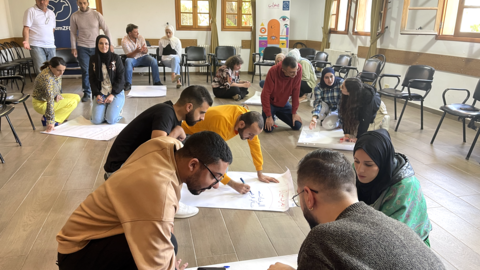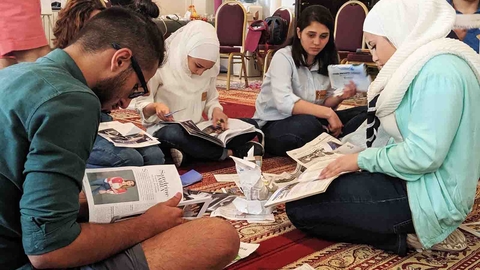Knowledge Production and Development
Since its inception, knowledge production and development has been the cornerstone of Steps’ work. We focus on developing training and educational tools, curriculums and materials. We do that in systematic approaches that align closely with the needs and priorities of the communities we serve. Our team of experts collaborate to create engaging content that meets the identified learning objectives. Our knowledge production and development processes ensure not only relevance but impact, ultimately empowering individuals and groups with the knowledge and skills they need to drive positive change.


Facilitating Hawli w Hawalayi training for Animators